Elizabeth Spann Craig's Blog, page 136
April 20, 2014
Keeping Motivated By Focusing on Today
By Elizabeth S. Craig, @elizabethscraig
By now in North Carolina, we usually have average daily temperatures in the lower 70s and sunshine more often than not.
It’s been a very strange winter and spring in the US.
We did have a spate of spring-like weather last week for a short time. Since I’ve been feeling a little daylight deprived, I decided to go outside and do some gardening. Actually, it was more like “yard work” since “gardening” to me denotes doing something light and airy with flowers. This was work where I somehow ended up getting filthy and had to mop and vacuum my floor later because I’d tracked in.
It was wonderful to be outside, though. I pulled weeds in two large beds, laid newspaper down in the beds for a weed barrier, then put some pine needles on top. Filled my birdfeeders, then used my shovel on some spots where weeds were trying to invade the bushes.
I looked back on what I’d done and thought: “This looks amazing. So much better than it did before I started working.”
Then I made the tremendous mistake of plopping down in a chair on my patio and studying the bushes on the far side of the yard. There was some sort of mysterious vine that seemed intent on taking over the bushes—and the vine stretched from one end of the fence to the other. Where on earth had it come from? Did it have something to do with the odd weather we’d been having? It wasn’t honeysuckle, it wasn’t poison ivy (the two leafy offenders I usually see in my yard)—it was some sort of alien vine form.
Suddenly, the hour or so of work that I’d done in the yard was completely forgotten. The success and accomplishment I’d felt in the yard was gone. I decided I’d just been kidding myself—there was so much more work to do. That I’d never be done.
And it occurred to me that I’d felt this way before. Many times, actually. It’s the way I feel when I allow myself to think too much beyond each day’s writing session.
I’ve blogged on the danger of getting ahead of ourselves (hubris) when our writing is going really well. But this is really a more pervasive problem for writers, I think—the danger of not resting on our laurels for just one day without worrying about all the pages and all the revisions to come. That sense of total overwhelm that we get if we do think about it.
I’ve found, with my writing, that things go so much better for me and I stay much more motivated if I take my goals one day at a time. It’s been a busy week here—my kids have been off for spring break (back at school today). It’s been Easter and we’ve spent time with family and I cooked an Easter dinner. I took my son over break to visit more colleges. And I’ve met my goals…but I haven’t exceeded them as I’d liked to have done.
Every day, though, I start fresh. I’m not trying to catch up…just like I don’t need to think I wipe out all the weeds in one fell swoop in my yard. I just focus on that day’s goals.
And, when I’m done, I try hard not to think ahead to all the future days’ goals stretching ahead of me…all the planting and weeding still to be done. I allow myself to feel as if I’ve done a good job for that day. Who cares if I end up having to edit out that day’s work, later? I’ve done the same for my garden when plants haven’t worked out the way I hoped. My yard was the better for it, too. No, for that day, all writing is good because I’ve done it—I’ve filled up my pages and set aside time for it. I’ll worry about the revising later.
How do you stay focused on your writing task at hand and not get overwhelmed by the work to come?
Image: MorgueFile: Gracey
The post Keeping Motivated By Focusing on Today appeared first on Elizabeth Spann Craig.
April 19, 2014
Twitterific Writing Links
by Elizabeth S. Craig, @elizabethscraig
Twitterific links are fed into the Writer’s Knowledge Base search alengine(developed by writer and software engineer Mike Fleming) which has over 23,000 free articles on writing related topics. It’s the search engine for writers.
And a happy Easter to all who celebrate.
It’s Only A First Draft: http://ow.ly/vHDHn @slynberg
For Soon To Be Published Authors: http://ow.ly/vHsIs @RLLaFevers @writerunboxed
Do Big Publishers Make Sense Anymore? http://ow.ly/vHEdm @wherewriterswin
Tips for avoiding Stupid Character Syndrome: http://ow.ly/vHECR @janice_hardy
5 Free Amazon Services That Will Help You Sell More Books: http://ow.ly/vHEvR @pjrvs
5 Reasons Reporters Make Good Writers… Most of the Time http://ow.ly/vISuc @write_practice
11 Stories You Can Start Telling By Dinnertime: http://ow.ly/vISFh @SeanPlatt
A writer on reading her bad reviews: http://ow.ly/vISZY @sarahbessey
So You Need A Celebrity Book. Who Ya Gonna Call? Ghostwriters. http://ow.ly/vISh6 @gabrieman @npr
ISBN: Every Novel Needs One: http://ow.ly/vISrw @wvancamp
Can Your Small Press Book Get a New Life with a Big Publisher? | DearEditor.com http://ow.ly/vISo6
5 Bizarre Scenes You Wouldn’t Expect in Classic Books: http://ow.ly/vIT9C @LaurenSarner
Query 101: Research, Research and More Research: http://ow.ly/vITaH
Best Hashtags for Authors to Use: http://ow.ly/vMpsy
How to choose & work with a cover illustrator of self-published books: http://ow.ly/vMlrs @IndieAuthorALLi
6 Ways for Writers to Overcome Perfectionist Tendencies: http://ow.ly/vMkPG @jeffgoins
Why “Balance” in Fiction Rarely Means a 50/50 Split: http://ow.ly/vMoiF @vgrefer
‘I’m in Love With a Writer’: A Survival Guide: http://ow.ly/vMsxG @AKellyAnderson
Why You Want An Agent Who Reads: http://ow.ly/vMsqu @carlywatters
The 10 Commandments of Social Media Etiquette for Writers: http://ow.ly/vMl9x @annerallen
7 Suggestions for Crafting Sound Scenes: http://ow.ly/vMrjR @AuthorMaureen
15 Ways To Improve KDP – Progress Report: http://ow.ly/vISQ0 @DavidGaughran
Word of Mouth and Blurbs for Indie Authors: http://ow.ly/vHE56 @stapilus @BookWorksNYC
Publishers Are Warming to Fan Fiction, But Can It Go Mainstream? http://ow.ly/vHDcl @Wired @RaeBeta
Screenwriting: The Catch-22 Agent Problem: http://ow.ly/vHDwO @scriptshadow
2 Ways To Revise Your Novel (And When To Use Them): http://ow.ly/vHssD @fictionnotes
When and why is violence necessary in a good piece of fiction? http://ow.ly/vHCTd @seanhtaylor
Writing picture books: Tips from the top: http://ow.ly/vHCdA @childbkauthor
Will Printed Books Disappear? Stephen King Has His Say: http://ow.ly/vHD7a @jonathangunson
The Complete Guide to Query Letters: http://ow.ly/vHCZ4 @Janefriedman
Writers, stand up for yourselves: http://ow.ly/vHzvH @kristinerusch
On Email and the New Age of Biography: http://ow.ly/vHCxU @nnimhaoileoin
Can we make our own luck in publishing? http://ow.ly/vVMlS @Porter_Anderson @writerunboxed
A Brief History of Choose Your Own Adventure: http://ow.ly/vHzqX @mental_floss
Creating Characters Readers Care About: http://ow.ly/vDudq @JulieEshbaugh
Should Authors Have to “Market Themselves”? http://ow.ly/vDu5t @kristenlambtx
Motivating Your Inner Writer: http://ow.ly/vDu02 @mooderino
Creativity is about facing fears: http://ow.ly/vDu7Z @tannerc
Quit Your Day Job—Become a Freelance Writer: http://ow.ly/vDurj @livewritethrive
How Book Advances Work: http://ow.ly/vDu2V @writersdigest
Post-Apocalyptic Clichés to Avoid: http://ow.ly/vDuht
Resources for finding an agent: http://ow.ly/vDtXW
It’s Not Just a Book; It’s a Business: Do You Need to Incorporate? http://ow.ly/vovWu @HelenSedwick
How Writing a Novel is Like Running a Marathon (and 1 example how it really isn’t): http://ow.ly/vovry @matthews_mark
Facebook for Writers: http://ow.ly/vDlsL @rsquaredd
5 Dual-POV Writing Tips: http://ow.ly/vos49 @ava_jae
Grammar expose–—using ‘they’ for third-person singular: http://ow.ly/vDm9L @victoriamixon
The difference between blogs and newsletters: http://ow.ly/vDm0T @jim_devitt
29 Networking Tips for Live Events: http://ow.ly/vouBd @trainingauthors
Fail Up: On Creative Resilience: http://ow.ly/vovGa @JordanRosenfeld
How to Buy a Top Spot on the New York Times Bestseller List: http://ow.ly/vDlO1 @pubperspectives
39 Synonyms for Run: http://ow.ly/vDl3O @writers_write
The Secret to Surviving Non-Writing Days: http://ow.ly/vDljH @JessBaverstock
Does Facebook Marketing Work? http://ow.ly/vosBz @SketchStone
Beat Sheets: For Plotters, Pantsers, and Technophobes: http://ow.ly/vB6M2 @jamigold
Is There Such A Thing As A Book That Belongs To Only One Genre? by Peter Higgins http://ow.ly/vDkZl
WordPress: Simple, but Effective Author Websites: http://ow.ly/vB6JN @fictionnotes
Critical Plot Elements -The End of the Middle: http://ow.ly/vB68P @Aimeelsalter
Tips for better plotting: http://ow.ly/vB6qb @johnhornor
Are You Ignoring This Simple Platform-Building Tool? How to Comment on a Blog: http://ow.ly/vB4gl @annerallen
Plot: Five Key Moments: http://ow.ly/vB31I @TheScriptLab
Kill or Cure: Medicine and Healing in SF/F: http://ow.ly/vB395 @SteffHumm
Tips for Outlining Your Story: http://ow.ly/vB42D @SHalvatzis
10 Ways To Up Your Word Count: http://ow.ly/vB3XN @Figures
Tips on Recording Your Short Stories: http://ow.ly/vB4cM @NathanielTower
Literary Agents are Still a Good Idea . . . Sometimes: http://ow.ly/vB3wh @fictorians
First know how to write, before worrying what to write: http://ow.ly/vB3HF @VeronicaSicoe
Top 10 Central Themes in Film: http://ow.ly/vB34l @thescriptlab
The Writer’s 8 Tools of Pitching: http://ow.ly/vB5xu @carlywatters
Why do we like hateful characters? http://ow.ly/vB5qJ @KenLevine
Live conversation on #EtherIssue: the current status of publisher-author relations (11 a.m. ET / 4 p.m. BST–)–Now.
5 writing tools: http://ow.ly/vB4kG @dottotech
How to Use Foreign Languages (Real or Imaginary) in Your Novel: http://ow.ly/vB5sU @JulietteWade
The Pit: Where Creatives Fall Into Despair: http://ow.ly/vB4y8 @joulee
The Art of Lyrical Lying: http://ow.ly/vB3dE @billycoffey @SouthrnWritrMag
Author’s Earnings: Mid-list Print Sales: http://ow.ly/vB5hb @author_sullivan
5 fanfic writing techniques that will help make you a better storyteller: http://ow.ly/vzkJ2 @BothersomeWords
Ad Copy Writing Techniques: http://ow.ly/vzm94 @StephenHise
Why Should Writers Work With Literary Journals? | Foreword Literary: http://ow.ly/vzjv0 @BookaliciousPam
Weak Writing: http://ow.ly/vznxn @beccapuglisi
8 ways to know if you have a good agent: http://ow.ly/vznry @nathanbransford @passivevoiceblg
Tips for writing historical fiction: http://ow.ly/vzkkj @guardianbooks
Indie Author Facebook Tips: http://ow.ly/vzjgh @AuthorAngelaS
Are publishers and authors still miles apart? Or narrowing the gap? http://ow.ly/vPgJ0 @Porter_Anderson @ornaross
Does Your Cover Need a Reboot? http://ow.ly/vzk7D @dvberkom @jenblood
5 Keys to Surviving A Successful Revision: http://ow.ly/vzm46 @ALeighWilliams
Agent Interview with @brandibowles: What Makes Her Accept or Reject Manuscripts: http://ow.ly/vzmoX @NataliaSylv
How to Write Fast: http://ow.ly/vzkqM @seanplatt
Generating Suspense Through Conflict: http://ow.ly/vzlSE @woodwardkaren
Use Zodiac signs to build stronger romantic characters: http://ow.ly/vOnWc @DarlaGDenton
3 Areas That Suffer in Quantity-Driven Writing: http://ow.ly/vzknS @jodyhedlund
Tips for character driven writing (and a link to the Proust questionnaire for char. development): http://ow.ly/vzl9Q @NicoleEvelina
5 Insights from Bestselling Authors: http://ow.ly/vzjRi @jamigold
Epilogues and When to Use One in a Novel: http://ow.ly/vzlE8 @billybuc
Looking for an editor? Check them out very carefully: http://ow.ly/vzlpH @JodieRennerEd
What It Really Means to Be A Serious Woman Writer: http://ow.ly/vyfdB @nataliasylv
Screenwriting tips: 5 ways to write distinctive dialogue: http://ow.ly/vyd6S @Sofluid
Agent Interview with Sharon Bowers: http://ow.ly/vyfmy @LoriRaderDay
Screenwriting Tips: How to Approach Genre as You Begin Your Script: http://ow.ly/vydwG @nofilmschool
A successful writer shares her top tips on self-publishing: http://ow.ly/vydh4 @CathRyanHoward
Scriptwriting–Christopher Nolan on Memento: http://ow.ly/vyeFB @LaFamiliaFilm
Freelance Writing–Using Social Media to Land New Writing Gigs: http://ow.ly/vMw1a @ShawndraRussell
5 things every historical romance novel should/shouldn’t have: http://ow.ly/vydKs @ViolettaRand
Editors: How Much (Or How Little) Should You “Rewrite”? http://ow.ly/vye4P @rsguthrie
How Long Should Your Nonfiction Manuscript Be? http://ow.ly/vydDt @nonfictionassoc
Dropping the F-Bomb in YA Lit: http://ow.ly/vyefy @HeatherJacksonW @tweetonsisters
The 10 best books about self publishing – a reading list http://ow.ly/vydS0 @standoutbooks
More Than Enough White Children’s Books? http://ow.ly/vyf7T @EBONYMag
Is character sympathy important? http://ow.ly/vyemN @JordanMcCollum
The Author’s Promise – two things every writer should do: http://ow.ly/vyf0p @Writers_Write
See Your Book Idea Through the Lens of a Publishing Professional: http://ow.ly/vydYM @ninaamir @thecreativepenn
Writing: How to get it done: http://ow.ly/vyevg @rchazzchute
Choosing Writing: http://ow.ly/vydr8
Literary genre: haven or prison? http://ow.ly/vwXnd @ScottTheWriter
10 Ways Pre-Published Writers Can Start Establishing Their Careers Now: http://ow.ly/vwXyf @SarahAllenBooks for @annerallen
Managing File Sizes for Ebooks: http://ow.ly/vwUUq @JWManus
On ISBNs: http://ow.ly/vwV2j @stevelaubeagent
The Elephant in the Room: Are You Ignoring Your Story Revision Instincts? http://ow.ly/vx2Dy @AlythiaBrown
All the links I shared last week: http://ow.ly/vJYwr . All the links I’ve ever shared (searchable): writerskb.com .
The Great E-book Pricing Question: http://ow.ly/vwWt2 @DavidGaughran
5 Tips for Running a Writers’ Circle: http://ow.ly/vwUdk @standoutbooks
The post Twitterific Writing Links appeared first on Elizabeth Spann Craig.
April 13, 2014
Freelance Writing–Using Social Media to Land New Writing Gigs
By Shawndra Russell, @
ShawndraRussell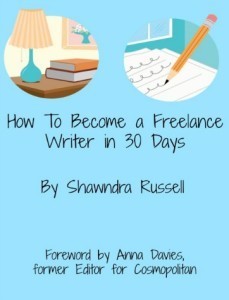
Social media opens up a world of opportunity for us writers. You can create a private Notice-Me List on Twitter filled with publications you want to write for and editors you want to work with, so you can be sure to interact with them frequently. You can show off your work in numerous ways, like pinning published pieces to a dedicated Pinterest board and uploading samples to your Linkedin page. You can list your skills and experience on your Facebook About page.
These platforms give you a lot of means to reach new decision makers who are looking for solid writers. Being active on social media also makes others willing to hire you or accept a guest post because they will have more confidence that you will actively share the piece, which obviously promotes both you and the outlet.
Last year, I was contacted out of the blue by an editor of a new outlet called Society South, who had first discovered me on Pinterest. She liked what she read and my interests and offered me a steady gig writing travel pieces. One of the best aspects of Pinterest is that you can spend a few hours building it out even if you’re starting from scratch, and then you can just go back and pin new published pieces periodically. It’s not the time suck that Facebook and Twitter can be, but the full picture Pinterest gives of your personality along with a board dedicated to your portfolio can lead to unexpected opportunities. Plus, you can comment, like, and repin pins from outlets you want to write for to get on their radar.
This year, I was recommended to the folks behind the new Georgia CEO partially due to my active social media presence. Your goal should be to show editors that they can trust you’ll not just turn in a great piece of writing (that goes without saying, right?), but that you’re also an asset because you will help get the word out about your piece.
And having a robust Linkedin profile has led to numerous headhunters and businesses reaching out to offer me full-time jobs, editorial positions and other writing-related opportunities. Having people seek me out instead of always being the one hustling for new gigs—although I still do plenty of that!—has really helped boost my bottom line.
Another benefit of taking your social media presence seriously as a writer is that if you decide to one day tackle that book, share your advice, or create an online course, you’ll already have a solid network that can help you spread the word about your new venture or, better yet, become customers.
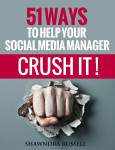 Lastly, consider adding social media services to your list of writing services. You don’t need to have an MBA or marketing degree to provide content for businesses. Coming at social media from a writer’s perspective means you’ll provide useful, well-written content, which will lead to more engagement from their target audiences. Plus, tapping into providing social media services as another revenue source can be very lucrative, since so many small and medium businesses are overwhelmed by social media. While they might not be advertising that they are hiring a social media manager/content creator, a quick glance at their Facebook and Twitter profiles can tell you if they are in desperate need of your writing skills.
Lastly, consider adding social media services to your list of writing services. You don’t need to have an MBA or marketing degree to provide content for businesses. Coming at social media from a writer’s perspective means you’ll provide useful, well-written content, which will lead to more engagement from their target audiences. Plus, tapping into providing social media services as another revenue source can be very lucrative, since so many small and medium businesses are overwhelmed by social media. While they might not be advertising that they are hiring a social media manager/content creator, a quick glance at their Facebook and Twitter profiles can tell you if they are in desperate need of your writing skills.
How can you up your social media game to attract new clients?
Shawndra is a writer and social media educator for businesses, professionals and  college students with the intent of stopping outdated me! me! me! marketing. Her latest works are How to Become a Freelance Writer in 30 Days and 51 Ways to Help Your Social Media Manager Crush It! Read about her services and projects at shawndrarussell.com.
college students with the intent of stopping outdated me! me! me! marketing. Her latest works are How to Become a Freelance Writer in 30 Days and 51 Ways to Help Your Social Media Manager Crush It! Read about her services and projects at shawndrarussell.com.
Note from Elizabeth: Thanks for the post, Shawndra–I’ve had quite a few emails from writers asking how to get started with freelancing…an area I haven’t explored yet, myself.
In addition, wanted to let everyone know that my next post will be Sunday, since I’m taking a little time off this week for writing and spending time with my kids who have the week off. See you on Sunday.
The post Freelance Writing–Using Social Media to Land New Writing Gigs appeared first on Elizabeth Spann Craig.
April 12, 2014
Twitterific Writing Tips
by Elizabeth S. Craig, @elizabethscraig
Twitterific links are fed into the Writer’s Knowledge Base search alengine(developed by writer and software engineer Mike Fleming) which has over 23,000 free articles on writing related topics. It’s the search engine for writers.
3 Deadly Traps for a Writer: http://ow.ly/vqpld @jonathangunson @RogerDColby
Writers: Fire Your Guru: http://ow.ly/vqkxv @rchazzchute
How to Stop Procrastinating and Just Write: http://ow.ly/vqknz @screencrafting
5 Famous Authors and Their Strange Writing Rituals: http://ow.ly/vqptA @saostroff
10 Can’t Miss, Surefire Secrets Of Torturing Fictional People: http://ow.ly/vqkik @io9
How to Fill a “Hole” on the Bookstore Shelf: http://ow.ly/vqoEQ @ninaamir
The Ins and Outs of ISBNs: http://ow.ly/vqop9 @MarcyKennedy
How To Free Up Brain Space And Be A Better Writer: http://ow.ly/vqoJy @writersrelief
Dysfunctional fathers in crime fiction: http://ow.ly/vGlPN @mkinberg
5 Reasons Agents Don’t Explain their Rejections: http://ow.ly/vqppT @rachellegardner
Tips for Avoiding Clichéd Characters: http://ow.ly/vqoWp @beccapuglisi
5 Ways to Grow Your Novel: http://ow.ly/vqp4d @janice_hardy
The importance of writing retreats: http://ow.ly/vDlI1 @WriteToSell
10 Tips for Manuscript Preparation http://ow.ly/vospb @daveBricker
Psychology and Storycraft: Does Your Character Have a Borderline Personality Disorder? http://ow.ly/vDl6D @SkyeFairwin
Writing a Strong Book Description: http://ow.ly/vos9b @sabsky
How to convert your book file into ePub format: | Gordon Burgett’s Blog http://ow.ly/vDlRb
Humor and Critique: Don’t Go Bonkers Writing Funny Stuff: http://ow.ly/votAO @ConnieBDowell
The importance of likeable protagonists: http://ow.ly/votGO @CSLakin
The Author Monthly Planner: A Freebie to Organize Your Writing and Marketing Life: http://ow.ly/votSZ @duolit
5 Ways To Sell More Books On Amazon.com: http://ow.ly/vDlbC @writeonepub
Facebook for Writers: Gripes, Tips: http://ow.ly/voutH @rsquaredd
Scriptwriting: Straying From the Party Line: How I Met Your Mother http://ow.ly/vDleq @cockeyedcaravan
Stet: An Editor’Â’s Rant: http://ow.ly/vos05 @pubsmartcon
6 Ways To Get More Book Reviews: http://ow.ly/vouGr @bkmkting
10 Tips for Avoiding Defamation: http://ow.ly/vosSQ @HelenSedwick
Tips for Print Formatting–hyphenation: http://ow.ly/vDqVO @authorterryo
The Differences: Substantive Editing, Copy Editing & Proofreading: http://ow.ly/vov8R @writeonepub
What Raiders of the Lost Ark Taught 1 Writer About Storytelling: http://ow.ly/vnMzA @Savage_Woman
6 Ways You Can Know Your Characters Better: http://ow.ly/vnMJV @carlywatters
The Amateur’s Guide to a Professional Book Package: http://ow.ly/vnMFS @DIYMFA
A Kirkus editor works to clarify their policy on paid indie reviews: http://ow.ly/vnNBm @IndiesUnlimited @KSchechner
What If Literary Agents Don’Â’t Want Your Novel? http://ow.ly/vnMvZ @EmilyWenstrom
19 Things Women Writers Are Sick Of Hearing: http://ow.ly/vnMnD @theferocity @IsaacFitzgerald
The Author/Agent Conversations: Why the ‘Iceberg Theory’ Is Key to World-building http://ow.ly/vnLR8 @navahw @leeykelly
6 Tips for Promoting Books with an Excerpt: http://ow.ly/vnO8p @AdriennedeWolfe
Drafting Your Novel: Expanding from Within: | Jack Smith: http://ow.ly/vAWxC
8 Reasons Every Book Needs a Business Plan to Achieve Success: http://ow.ly/vnM9h @ninaamir
Publish or self-publish? Advice for the 2014 writer: http://ow.ly/vnN8d @Roz_Morris
How To Complete Every Writing Project You Start: Become a Completion Addict: http://ow.ly/vnMf3 @JessBaverstock
Are publishers any closer to digital innovation? Live chat: #EtherIssue with @Porter_Anderson at 11 a.m. ET, 4 p.m. BST (Now)
Customize your own rules for revision: http://ow.ly/vnMUr @TheWriterMag
Why Creative Geniuses Often Keep a Messy Desk: http://ow.ly/vnN2x
Marketing for You, the Indie Writer: http://ow.ly/vAVWW @SeeleyJamesAuth
Cover Layout for Beginners: http://ow.ly/vnMt9 @cedarlili
Increasing Visibility on Amazon: http://ow.ly/vnNry
Social Media Book Promotion—–How much is too much? http://ow.ly/vnMR8 @kathyide
How to Handle Rejection: http://ow.ly/vhu6x @WritersEdit
Scrivener Cheat Sheet: http://ow.ly/vkC2X @ckmacleodwriter
The Publishing Business Plan – 7 Essential Elements: http://ow.ly/vkBcp @ninaamir
Write, Yes. Publish? Maybe. | Richard Levesque: http://ow.ly/vkBKa
Why You Should Get Back to Basics in Your Writing’ http://ow.ly/vkI7T @Janice_Hardy
Marketing Your Self-Published Ebook: A Writer Shares Her Biggest Mistakes: http://ow.ly/vkABs @HalonaBlack
Is Kindle Countdown the new Free? http://ow.ly/vkCvx @mlouisalocke
Hit the Ebook Bestseller Lists with Preorders – A Guide to Preorder Strategy: http://ow.ly/vkIH1 @markcoker
9 Ways to Grow in Writing Skills: http://ow.ly/vkIpV @jodyhedlund
4 Tips to Using Facebook Events to Their Maximum Potential: http://ow.ly/vkAAW @trainingauthors
Killing the Top Ten Sacred Cows of Indie Publishing: Self Publishing is Easy : http://ow.ly/vkAAt @deanwesleysmith
Publishers need to think outside the box when it comes to digital: http://ow.ly/vywEd @HughHowey @Porter_Anderson @DigitalDanHouse
Writing a Strong Book Description: http://ow.ly/vkBsQ @sabsky
How to Market Your Books to a Worldwide Audience: http://ow.ly/vkABF @CaballoFrances
The 10 Worst Things You Can Say to a Writer During a Book Launch: http://ow.ly/vkHXt @hollyrob1
Is e-publishing changing the length of a book? http://ow.ly/vkBXo @IBMartyn
Not Selling Books? Did you do the Math? http://ow.ly/vkCnQ @daveBricker
Freewriting tips and benefits: http://ow.ly/vvwJ0 @mishy1727
Prepare your book for its KDP Select free promotion days: http://ow.ly/vkCc4 @zackheim
The Bullies Win: Authors Abandoning Publishing Over Online Behaviors: http://ow.ly/vzmWO @Goodereader
The Bullies Win: Authors Abandoning Publishing Over Online Behaviors: http://ow.ly/vzmWO @Goodereader
The Bullies Win: Authors Abandoning Publishing Over Online Behaviors: http://ow.ly/vzmWO @Goodereader
Clichés and Stereotypes to Avoid When Writing Transsexual Characters: http://ow.ly/vhtpF @calpernia
Writing Process–Developing a Story Idea: http://ow.ly/vvq9A
10 Commandments for Fiction Writers: http://ow.ly/vhug4 @NathanielTower
The Creative Benefits of Taking a Break: http://ow.ly/vht96 @CherylRWrites
The 10 best fictional evil children: http://ow.ly/vdrcB @guardianbooks
Ask Not What Your Readers Can Do For YouÂ… http://ow.ly/vhukO @jscottsavage @writersdigest
Different types of horror writing: http://ow.ly/vdqHl @PubHub_blog
The Organized Pantser: http://ow.ly/vht5r @joyafields
Tips for Print Formatting: http://ow.ly/vvrLJ @authorterryo
10 Pinterest Tips for Writers: http://ow.ly/vhtjt @CaballoFrances
5 Ways to Kill The Descriptions in Your Science Fiction Novel: http://ow.ly/vhtYk
YAtopia: What to Look for in a Critique Partner: http://ow.ly/vdr1B
Embracing Our Creative Abilities and Inspirations as Gifts: http://ow.ly/vhtUj @DouglasEby
The Dreaded Sagging Story Middle: http://ow.ly/vhtnl @tinagabrielle
3 Free Apps for Making an Impressive Book Trailer: http://ow.ly/vht1e @thewritelife
Different types of bestsellers: http://ow.ly/vdqih @cjlyonswriter @pubsmartcon
MFA vs NYC vs DIY: http://ow.ly/vhsTn @jaelmchenry @writerunboxed
Throwing a release celebration instead of a book launch party: http://ow.ly/vvqQt @jaxjacoby @jemifraser
Tightening Your Novel With a Preposition Patrol: http://ow.ly/vdqNj @Janice_Hardy
The Science of Rejection: With Literary Agent Jeff Kleinman: http://ow.ly/vdq7l @pubsmartcon
All the links I shared last week: http://ow.ly/vvq3l . All the links I’ve ever shared (searchable): writerskb.com
Getting Started Again: Writers’ Tips for When You’re Stuck: http://ow.ly/vdqsY @writeabook
Tips for better blog commenting: http://ow.ly/vvwqp @SpunkOnAStick
Telephone records as clues in crime fiction: http://ow.ly/vvpzn @mkinberg
The importance of secondary characters: http://ow.ly/vdr7i @PBRWriter
Character Type: Visionary: http://ow.ly/vdozT @gointothestory
The Skill List Project: Rewriting: http://ow.ly/vdnXc @jamesagard
4 Essential Tips for First-Time Con-Goers http://ow.ly/vdnG3 @VoiceoverJoe
Indie Publisher: The New Publishing Entrepreneur: http://ow.ly/vdoZH @ninaamir
Why Writers Need Metrics, Too: http://ow.ly/vdniP @GeorgeAnders
Prestigious Reviews and How to Get Them: http://ow.ly/vqozr @111publishing
What Is Your Definition Of Success? How Do You Measure It? http://ow.ly/vdoiM @thecreativepenn
Understanding Character Wounds: A List Of Common Themes: http://ow.ly/vdoxe @angelaackerman
A Comic Book Writer On How To Power Up Your Creative Business: http://ow.ly/vqpdl @kellysue @EvieN
12 Inspirational Writing Tips From History’s Greatest Authors: http://ow.ly/vqotf @hubspot
Presenting to School Students: Top Tips: http://ow.ly/vqoO3 @writerunboxed
9 Ways to Grow in Writing Skills: http://ow.ly/vqkky @jodyhedlund
1 Writer’s Too-Pratical Maybe-Blunt Advice To Writers: http://ow.ly/vqold @nataliewhipple
Juxtaposing characters: http://ow.ly/vGnIw @JL_Campbell
eBooks Should be More Expensive, and Other Ideas: http://ow.ly/vsTzu @thDigitalReader
5 Ways To Improve A Perfect Story: http://ow.ly/vsTxP @Yeomanis
21 Things 1 Writer Wishes She’d Known Before She Started Writing: http://ow.ly/vsTit @robin_black
Six Mistakes New Authors Make When Dealing with Agents: http://ow.ly/vsTQ9
The Arts and Crafts of Writing Fiction http://ow.ly/vsTFe @VaughnRoycroft @writerunboxed
5 Steps for Editing a Novel from the Inside Out: http://ow.ly/vsTsw @JFBookman
The Real Cost of Services: http://ow.ly/vsTmy @ilona_andrews
How not to ask Authors for Favors: http://ow.ly/vsTY3 @Jkagawa
Indie Author Challenge: Getting Books Into Stores: http://ow.ly/vsTTo @Brandilyn
Nonfiction: 10 Reasons to Create a Business Plan for Your Book Before You Write a Word http://ow.ly/vsTLa @ninaamir
Why some people make money writing and others never will: http://ow.ly/vsTux @menwithpens
1 writer’s take on conventions: http://ow.ly/vsCy9 @trpthroughmymnd
Why We Need Writing Buddies: http://ow.ly/vsU59 @diymfa
Scrivener Review: Is it the best book writing software? http://ow.ly/vsTN2 @standoutbooks
Are We Entering a Golden Age of the Second Novel? http://ow.ly/vsU3p @The_Millions
Public Domain True or False: http://ow.ly/vGxOc @HelenSedwick
Writers You Want to Punch in the Face(book): http://tinyurl.com/qes2mck @rebeccamakkai @pshares
15 favorite books about libraries and librarians: http://ow.ly/vwVhi @bookpage
How to Be a Publishing Authority in One Step: http://ow.ly/vwXsb @JanetKGrant
Nonfiction: 3 Things Successful Self-Pubs Do Well: http://ow.ly/vwUxW @CarlaJDouglas
Getting Your Book Out There: Distribution Options for Indie Authors | Wise Ink’s Blog: http://ow.ly/vx2rq
5 Plotting Mistakes New Writers Make (and How to Avoid Them): http://ow.ly/vwVH7 @DonnaCookAuthor
An Editor’s List of Novel Shortcomings: http://ow.ly/vwUKq @jamesscottbell
Getting Rejections? Tips for What To Fix: http://ow.ly/vx2il @inkstainsclaire @writing_ie
5 Tips for Running a WritersÂ’ Circle: http://ow.ly/vwUdk @standoutbooks
The post Twitterific Writing Tips appeared first on Elizabeth Spann Craig.
April 10, 2014
Reading
By Elizabeth S. Craig, @elizabethscraig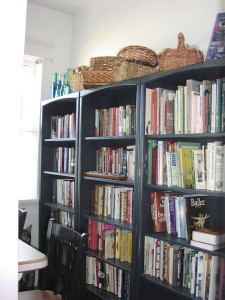
Reading and writing have always gone hand in hand with me. I read early and read books I found around the house or at the library, whether they were intended for me or not. I remember making up stories to fit the covers of adult books when I was in kindergarten.
I can’t imagine not fitting in reading now, no matter how crazy life gets. It would be like not fitting in time for lunch or something. I fit it into spare minutes during the day and a bit longer at night before falling asleep.
People who know I write usually ask me if I read the genre I write. And I do—but not the subgenre I write. Not often…these days probably only if I’m blurbing something for someone. That may be because when I read my own subgenre, I go almost instantly into market research mode, which is not the same as getting lost in a book. So I tend to read tons of mysteries, but mostly police procedurals or psychological mysteries, or traditional mysteries that are nothing at all like mine.
Although mysteries are probably always going to be my favorites, I read tons of other books, too. Discoverability is interesting for me. I buy books that other readers and writers recommend and blog about, books that Kindle emails me as the daily deal, books that friends of mine write, books that my favorite authors release. I try to read a little of everything—from poetry to nonfiction. No matter the genre, it always serves to heighten my own creativity (even, somehow, the biographies I read).
It’s always a little embarrassing to me that I usually don’t remember titles or author names or—often—even the endings of books after reading them. For this reason, I keep careful lists of books I’ve enjoyed and always have the list available on my phone. People ask me all the time what I’m reading and it’s a relief to finally have an answer for them, even if I have to look it up. But then, I’m someone who keeps cheat sheets of my own books so that I’m not caught off guard while speaking to a book club. If I can forget books that I’ve labored over for months, I guess I shouldn’t feel bad about forgetting someone else’s.
I used to read a lot of books about writing, but I don’t so much anymore. Or, if I do, I jot down notes in a separate document that I can reference during editing. If I read too much about writing, I don’t write as much, or I write more cautiously (which doesn’t really work for me).
I think, of all the reactions I get when I tell new acquaintances that I’m a writer, the worst is when someone says, “I don’t read.” I’ve gotten very good at an impassive expression when I get that answer, although the first time someone said it, I’m sure I must have looked shocked. But do also I like to get the message out to these folks that writers aren’t tied to books—because, we’re not. We’re about so much more than that, moving into the future. I’ll mention that if they listen to music or enjoy movies or television shows, or even enjoy complex video games…that writers are behind those forms of entertainment, too. We create content.
So…what have you been reading? When do you fit it into your day? How do you find new books to read? And—how long is your TBR (to be read) list?
Image: MorgueFile: jjulian812
The post Reading appeared first on Elizabeth Spann Craig.
April 8, 2014
Drafting Your Novel: Expanding from Within
Guest Post by Jack Smith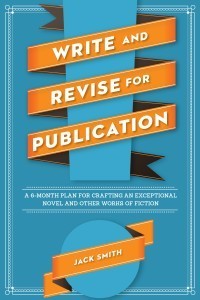
Robert Garner McBrearty, author of the Sherwood Anderson Foundation Fiction Prize for his collection Episode, recently shared a technique he’s been using to draft a novel.
Write the whole thing through, regardless of length, and then expand from within.
This is a great process idea. Of course, prior to drafting, you do need a sense for your character and where you want to take this character. But, assuming you have that, just shoot through the draft. Don’t worry about all the scenes you might flesh out your novel with, all the secondary characters you might come up with, subplots, etc. Just write through what appears to be the essential conflicts—the ones that tell your basic story.
McBrearty has expanded his original version of 50 pages into a present version of close to 200. He says: “The first writing, even though rough and skeletal, established a sense of voice and who the main characters were. New scenes occurred to me and the skeletal scenes filled out with sensory detail and character interactions. I know I have plenty of rewriting left to do, more development still to come, but I’ve got a good base to work from. I’m confident I’ll finish; the novel won’t be abandoned.”
Keeping in mind McBrearty’s process idea, here’s another approach. This one starts with a kernel idea:
1. Write a one- two-sentence description of your proposed novel (the log line).
2. Expand this description to 300 words or so.
3. Write a novel from this, even if means 10 to 20 pages first draft.
4. Expand your novel from this short version.
5. Reread your novel.
6. Continue expanding.
7. You will probably need to rethink your initial description as you go.
Let’s say, though, that you’ve already written a full-length novel, or close to it, and you’re wondering whether you ought to keep everything—some material seems rather extraneous to your character’s overall arc. It’s hard to cut! But weed out what seems extraneous material. Strip your novel down to its key developments—its basic structure. Look again at the material you weeded out. Can it fit somewhere? Perhaps portions of it can. Perhaps whole scenes you temporarily cut might, in fact, work after all—perhaps in a different place in the novel. Or you might decide that some material you cut does, in fact, take the novel off course. If so, eliminate the dross. Finally, take your new, stripped-down draft and expand from within. Seeing the bare bones of your work helps in creation but also in revision.
Jack Smith is author of the novel Hog to Hog, which won the George Garrett Fiction  Prize (Texas Review Press. 2008), and is also the author of Write and Revise for Publication: A 6-Month Plan for Crafting an Exceptional Novel and Other Works of Fiction, published earlier this year by Writer’s Digest
Prize (Texas Review Press. 2008), and is also the author of Write and Revise for Publication: A 6-Month Plan for Crafting an Exceptional Novel and Other Works of Fiction, published earlier this year by Writer’s Digest
Over the years, Smith’s short stories have appeared in North American Review, Night Train, Texas Review, and Southern Review, to name a few. He has also written some 20 articles for Novel & Short Story Writer’s Market, as well as a dozen or so pieces for The Writer. He has published reviews in numerous literary journals, including Ploughshares, Georgia Review, Missouri Review, Prairie Schooner, American Review, Mid-American Review, and the Iowa Review.
Robert Garner McBrearty’s fiction has been widely published, including in The Pushcart 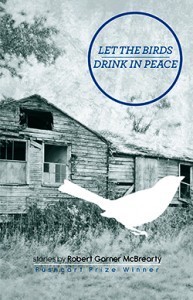 Prize, Missouri Review, Narrative Magazine, Mississippi Review, and New England Review. He’s the author of three collections of short stories: A Night at the Y; Episode, which was awarded the Sherwood Anderson Foundation Fiction Award; and most recently, Let the Birds Drink in Peace, published by Conundrum Press in 2011. He’s won fellowships to The MacDowell Colony and the Fine Arts Work Center in Provincetown, MA, and his short stories have frequently been performed at Stories on Stage in Denver and at the Texas Bound show at the Dallas Museum of Art.
Prize, Missouri Review, Narrative Magazine, Mississippi Review, and New England Review. He’s the author of three collections of short stories: A Night at the Y; Episode, which was awarded the Sherwood Anderson Foundation Fiction Award; and most recently, Let the Birds Drink in Peace, published by Conundrum Press in 2011. He’s won fellowships to The MacDowell Colony and the Fine Arts Work Center in Provincetown, MA, and his short stories have frequently been performed at Stories on Stage in Denver and at the Texas Bound show at the Dallas Museum of Art.
The post Drafting Your Novel: Expanding from Within appeared first on Elizabeth Spann Craig.
April 7, 2014
Writing Process–Developing a Story Idea
by Elizabeth S. Craig, @elizabethscraig
When I spoke to students recently, they asked a lot of questions and some very good ones. Naturally, though, one of the questions, which won’t surprise any writer who talks about his writing, was ‘where do you get your ideas?’ This question is practically mandatory any time you mention writing to anyone…whether you’re speaking at a conference or telling a stranger at the grocery store what you do.
But as I thought about it, the question has another angle too, one that was asked later on by another student. How do you develop a story–a nearly three hundred page, finished book–out of a tiny spark of an idea?
Because I write genre/commercial fiction, the following will be heavily skewed toward anyone writing for a particular genre’s readers.
The genre itself: What do you enjoy reading? I read mysteries all the time and it’s what I’m most familiar with as a genre. It makes the writing a lot simpler because I know the genre’s specifications inside out. It’s also important to know, if you’re writing commercial fiction, what the readers of the genre enjoy. What’s popular in your specific genre? Amazon makes this type of research easy by ranking books by popularity by genre.
The spark: This is whatever idea was the seed for the story. For me, it’s always the murder victim, since I write mysteries. I start with the seed of the story, fleshing it out by asking what about this person would make four of five people want to get rid of her. So, for me, it’s genre-specific. What is happening in your story world to make everything change for the worse?
Characters: If this is the first book in a series for me, I keep this part fairly basic early on, so I don’t get overwhelmed. I brainstorm a protagonist, making the character as complex as possible. What makes this protagonist special or different from other characters? What skills does she have? During this process, I’m also considering flaws, and what the main character desperately cares about and fears. How could this character grow during the course of the novel as she navigates all her obstacles?
I brainstorm characters to create minor conflict for the protagonist, apart from the murderer (maybe a relative who demands a lot of the protagonist’s time and attention or who the protagonist really cares for). Or someone who stands in the protagonist’s way or doesn’t believe in her.
I develop suspects who all stand to gain in some way from the victim’s death (in your story, this might be an antagonist).
Setting: Are you writing a real setting or a fictional setting? There are pros and cons to both. If you’re writing an actual place, you’ll need to be very accurate and careful not to mention too many places that could date your book (businesses close, even successful ones). If you make your setting up, you need to make it real by mapping it out somehow so that it stays consistent. I do this by basing my made-up towns on real ones in two of my series. I just change the store names and the name of the town and get the best of both worlds. And I make notes in a story bible.
Points to consider when evaluating an idea:
How much conflict can this idea engender on its own? How could I increase that with internal conflict for the main character, antagonists, etc.?
Is this idea big enough to expound on for 75,000 words?
What sets this idea apart? What is different about it? Is it too derivative…and if it is, how can I make it unique?
My process for the very start of a book, summed up:
I come up with a murder victim and the cause of death (you’d start with whatever your story spark is). I ask who would want to murder the victim (suspects for me, characters for you). I brainstorm complex protagonists (think flaws, strengths, what the protagonist desperately cares about and fears). I think of characters (not necessarily suspects or the story’s murderer) who might be able to provide conflict for my protagonist or put her in the position where she has to make uncomfortable choices. I choose a setting. I write back cover copy (which may never be used) to sum up the story premise. Then I start my outline.
Everyone has different ways of developing an idea. What works for you?
Image: MorgueFile: Kenn W. Kiser
The post Writing Process–Developing a Story Idea appeared first on Elizabeth Spann Craig.
April 5, 2014
Twitterific Writing Links
by Elizabeth S. Craig, @elizabethscraig
Twitterific links are fed into the Writer’s Knowledge Base search alengine(developed by writer and software engineer Mike Fleming) which has over 23,000 free articles on writing related topics. It’s the search engine for writers.
Why You Should Walk Away From Your Writing: http://ow.ly/vaqb0 @KMWeiland
How boxed sets can help self-published authors sell more books: http://ow.ly/vaqgS @DianeCapri
Report from the Trenches: The Agent Panel: http://ow.ly/vaqyx @querytracker
Crafting Interesting Characters: http://ow.ly/vaqht @woodwardkaren
Marketing & Advertising for the Indie Author: http://ow.ly/vaqjA @heatherdgilbert
10 Famous Writers Who Hated Writing: http://ow.ly/vaqnX @huffpost
How to Write a Book: http://ow.ly/vaqkM @katieaxelson
3 Steps to Honestly Disturbed Characters: http://ow.ly/vaq7Y @WyattGBessing
Continue to Create No Matter What Is Going On: http://ow.ly/vapWS @DianeMacKinnon
12 Inspirational Writing Tips from History’s Greatest Authors: http://ow.ly/vaqej @hubspot
Selling Audio-Books and E-books to Libraries: http://ow.ly/vaqdH @111publishing
Query 101 Series: Body Copy – Character, Conflict and Cost: http://ow.ly/vaq3s @atrueblood5 @mesummerbooks
5 Plotting Mistakes Aspiring Authors Make (and How to Avoid Them): http://ow.ly/vaqvQ @DonnaCookAuthor
Developing Contacts to Promote Your Book: http://ow.ly/vqjZe @SpunkOnAStick
Plugging Plot Holes: http://ow.ly/vaqih @Michelle4Laughs
Examples of carefully calculated murders in crime fiction: http://ow.ly/vqjcV @mkinberg
Book keywords can help readers find new authors: http://ow.ly/vaq9J @standoutbooks
How to Turn That Shiny New Idea Into a Novel: http://ow.ly/vapZm @Janice_Hardy
28 Competitions and Fellowships for Screenwriters: http://ow.ly/vaq11 @A_WritersStudio
More Tips for Digital Formatting: http://ow.ly/vnOMe @authorterryo
How Not To Be Interviewed On The Radio: Reader POV: http://ow.ly/v6ZLS @DeniseAAgnew
How to Create an Audio Book: http://ow.ly/v6Z09 @floridaHeather
How to Organize Writing Research & Notes: http://ow.ly/v6ZFM @JennyHansenCA
How to choose and use an editor for your self-published book: http://ow.ly/v6YzU @HelenHollick
Plotting a Novel in 3 Acts: The Closing Scene: http://ow.ly/v6XK1 @JanalynVoigt
Why They Write: 23 Quotes from Famous Authors: http://ow.ly/v6Z5v @A_WritersStudio
Getting the Maximum Exposure from Your Free Book: http://ow.ly/v6YsB @morgankwyatt
Should We Ever Respond to a One-Star Review? http://ow.ly/v6YTG @stevelaubeagent
11 Things You Learn When Your Book Is Turned Into A TV Show: http://ow.ly/v71BL @kassmorganbooks
The Future of Hybrid Authors + Who Influences Our Purchases? [Smart Set] | http://ow.ly/voAvi @Janefriedman
1 Writer’s Self-Publishing Journey: http://ow.ly/v6Y5T @PCrutcher
The Unpublished Writer: Tools 1 Uses: http://ow.ly/v6YJW @writerlytweets
Yet Another Reason to Be an Indie: http://ow.ly/v6ZAp @ACFlory
Writer’s Block? Get Ideas Flowing With 3 Daily Rituals: http://ow.ly/v6YD2 @makeuseof
Points to Remember when Formatting a Book: http://ow.ly/vnOAD @authorterryo
How to Discover Your Book’s Tone: http://ow.ly/v6XC6 @batwood
Should Novelists Blog About Writing? Here’s Why Not: http://ow.ly/v6XVp @mridukhullar
The Secret To Writing Good Dialogue: http://ow.ly/v6ZrE @Scriptshadow
How to become a writing machine: http://ow.ly/v2NSn @AdriennedeWolfe
Public Speaking Toolkit For Authors: http://ow.ly/vmmVz @theprexpert
Speaking to Students about Writing: http://ow.ly/vmlLv
‘Poetry Is Like Pooping’ And Other Writing Tips From A TED Superstar: http://ow.ly/v2Fjr @kaysarahsera @fastcompany
10 Bits of Advice for New Writers: http://ow.ly/v2NJE
Should Science Fiction Writers Ignore Advice To ‘Write What You Know’? http://ow.ly/v2FFD @io9
Don’t Be Ashamed to be a Self-Publisher: http://ow.ly/v2HLZ @batwood
Should authors write books with listeners in mind? http://ow.ly/v2Lnv @stephenwoodfin
Is ebook revolution really in decline? http://ow.ly/vmkM4 @Porter_Anderson @Harkaway
Crowdfunding: The Newest Step In The Publishing Process: http://ow.ly/v2L6N @pubslush
Writers: Please dare to be different: http://ow.ly/v2HE0 @rchazzchute
The Spiraling Narrative: http://ow.ly/v2H5B @litreactor
How short-story writing can improve your long fiction http://ow.ly/v2Gxc @karenschrav
7 Things 1 Writer Heard at the VA Festival of the Book: http://ow.ly/v2Gf2 @charjojones
Life is Too Short to Read a Bad Book: A Conversation with an Editor: http://ow.ly/v2Hpw @SommerReading @EdanL
Your Amazon Author Page ~~ Is it Working for You? http://ow.ly/v2EyT @JackieWeger
Updike Used His Life to His Advantage in Fiction: http://ow.ly/v2FSU @Adamcbegley @NYMag
Screenwriting: 15 Great Films With Extremely Simple Plots: http://ow.ly/v2NzS @davidcinema
Manual Transmissions and Self-Publishing: Learning the Details: http://ow.ly/v2GRT @andilit
3 Fiction Writing Tips: Romance Fiction Made Easy: http://ow.ly/v2HaO @angee
When the Thrill is Gone: http://ow.ly/v2GEL @barbaraoneal @writerunboxed
8 Ways Oyster Books Can Rule the Ebook Subscription Market: http://ow.ly/v01qe @andrewpantoja
Wattpad, Kindle Direct Publishing and the Future of Fiction Writing: http://ow.ly/uZZsf
10 Questions to Help You Take Control of Your Writing Career: http://ow.ly/v014d @AmyDenim
Stupid Answers To Common Writing Questions: http://ow.ly/v005d @ChuckWendig {lang}
Top Five Things Kindle Doesn’t Want Authors To Know: http://ow.ly/v00KH
Book Promoting Sites: http://ow.ly/v00eV @eBookFoundry
6 Ways to Enjoy the Editing Process (Seriously): http://ow.ly/v01dl @Write_Tomorrow
What to avoid in query letters: http://ow.ly/uZZ5B @ramonadef
Getting Unconventional Is Great for Business: http://ow.ly/v00nx @jchutchins @writerunboxed
Choosing Your Own Adventures http://ow.ly/uZZUp @ecmyers
Sometimes You Have to Write for the Love of It: http://ow.ly/uZZD4 @jamesscottbell
How Do You Write a Novel? 6 Things that Stay the Same Every Time: http://ow.ly/v01gj @hollyrob1
How To Write Like Agatha Christie: http://ow.ly/uZZfD @woodwardkaren
What Changes in Your Scenes? http://ow.ly/v01xA @Janice_Hardy
Chapters: How Long is Too Long? http://ow.ly/uZZJM @stevelaubeagent
The Holy Grail of Writing-—Finding the Right Word: http://ow.ly/uZZbt @ediemelson
Who Are Literary Agents and Editors Anyway? http://ow.ly/uWnRL @kcraftwriter
What is the Future of Bookstores? 25 Influential Authors Weigh In: http://ow.ly/uZZPz @CarmenConnects
7 Things 1 Writer Has Learned About Editing: http://ow.ly/ @JL_Campbell
18 Scripts Screenwriters Should Read: http://ow.ly/uWo6G @whatculture
Why 1 writer isn’t interested in the Amtrack residency: http://ow.ly/uWokd @natalieburg_
Revising Your Novel : 10 Steps for Analyzing Plot: http://ow.ly/uWfAC @LaurHarrington @BTMargins
How to Write Without Adverbs: http://ow.ly/uWnt7 @TrishaNicholson
What Is Speculative Fiction? http://ow.ly/uWfDq @AnnieNeugebauer
Report from the Trenches: The Agent Panel: http://ow.ly/uWfl4 @querytracker
It’s Never Too Late to Set Writing Goals: http://ow.ly/uWnFw @DeeWhiteAuthor
Is Polish Noir The Next Big Thing? http://ow.ly/uWcB4 @pubperspectives
Why Self-publishing Is So Good For Literary Culture: http://ow.ly/uWfJ7 @ornaross
Is Hybrid Publishing Just a Phase for Writers? http://ow.ly/ve2tR @ThoughtCatalog @Porter_Anderson
Freelance Writing: Think Like an Editor, Sell Like a Pro: http://ow.ly/vcNrq @jenpens2
7 Types of Writer That Don’t Play Well With Others: http://ow.ly/uWcyj @AKellyAnderson
Should You Enter A Writing Contest? http://ow.ly/uWcJn @monicamclark
The Three Dimensions of Character http://ow.ly/uWnw3 @mooderino
The importance of self-discipline for crime fiction detectives: http://ow.ly/vdczA @mkinberg
6 Ways to Keep Readers Up Past Their Bedtime http://ow.ly/uWnzc @jodyhedlund
4 Things 1 Writer Learned about the Writer-Agent Relationship: http://ow.ly/uWcsu @bethvogt
Tips for Digital Formatting: http://ow.ly/vd1In @authorterryo
There’s an App for That – 22 Apps and Tools Every Writer Should Know About: http://ow.ly/uWfSb @novelicious
How to Attend a Writing Conference (And Make it Worth Your Time): http://ow.ly/uWg7t
Self-editing suggestions: http://ow.ly/uTA6v @stevelaubeagent
How 1 Writer Got Her 1st National Magazine Article Gig: Step-By-Step: http://ow.ly/uTwS4 by Tracy Hume
An Editor’s Skillset, Part I: Research, Observation, and Brevity: http://ow.ly/uTyQ4 @ChangeItUpEdit
LIAOTP (leave it all on the table): http://ow.ly/uTAQj @ann_swann
Overuse of adjectives: http://ow.ly/uTzxq @Dydywriter
5 Tips for Writing Quickly and Effectively http://ow.ly/uTB3L @workawesome
What to do after finishing your book: http://ow.ly/uTzv3 @SLeesmithAuthor
A Synopsis Checklist: http://ow.ly/uTuhI @ibelieveinstory
Cover copy tips: http://ow.ly/uTzfx @eNovelAuthors
Which famous writer’s style is most like your own? http://ow.ly/vaqcY @Writers_Write
How Writing is Like a Blind Date: http://ow.ly/vaqm6 @ediemelson
Hybrid Model: Agents’ Changing Roles Add Value to #Indie Authors: http://ow.ly/vs9Hw @tobywneal @agentsavant
10 ways to get over the fear of failure: http://ow.ly/vqpJ8 @ajackwriting
Query claims that an agent might double-check: http://ow.ly/vbpx4 @Janet_Reid
What is Creative Nonfiction? http://ow.ly/vbpPk @cnfonline
Writing Sex Scenes: Dos and Don’ts {explicit}: http://ow.ly/vboPv @lotuswriter
Is Writing Success Like a Lottery System? http://ow.ly/vbp2D @jamesscottbell
8 Things You Should Know About BookBub Subscribers: http://ow.ly/vbp8O @bookbubpartners
How Writers Find Rhythm: Effective Habits of 7 Authors: http://ow.ly/vbp64 @KatRamsland @psychtoday
Building Grassroots Support for Authors: 10 Steps: http://ow.ly/vbotE @wherewriterswin @authoradventure
The Rise of the Author Collective: http://ow.ly/vbprD @Writers_Artists
Sowing Seeds for a Sequel: http://ow.ly/vboJY @nancyjcohen
4 Benefits of NOT Writing Alone: http://ow.ly/vbp13 @amshofner
Benefits of Beta Readers–and How to Find Them: http://ow.ly/vboLM @111publishing
To DRM or not to DRM? Insights from the PWC report: http://ow.ly/vboVK @Nicholas_Rossis
Ten of the world’s most beautiful bookshops: http://ow.ly/vbotY @BBC_Culture
On Writing Badly and Redefining Failure: http://ow.ly/vbpdj @beccapuglisi
9 Steps To Get Your Spec TV Pilot Written, Edited & Sent Out: http://ow.ly/vbpsZ @bang2write
Genre lines: Why literary writers won’t self-publish: http://ow.ly/vbpBM @robotech_master
11 Steps to Check Off Before Self-Publishing: http://ow.ly/vdoDr @miralsattar
A Writer’s Confession: http://ow.ly/vdo6D @ssvik @womenwriters
Reviewing 101: http://ow.ly/vdpa9 @BooksAndPals
10 Tips On Being A Productive Writer http://ow.ly/vdnQb @bang2write
How many words do you write a day? Do you have to force yourself? How successful authors do it: http://ow.ly/vdnj6 @Roz_Morris
The improvised word leaves space for you: http://ow.ly/vdooQ @damiengwalter
A Writer’s Pink Slip to the Neverending Struggle: http://ow.ly/vdocF @danasitar
Body language tips for writers: http://ow.ly/vdnUi @Writers_Write
The post Twitterific Writing Links appeared first on Elizabeth Spann Craig.
April 3, 2014
Making Character Deaths Meaningful
by Elizabeth S. Craig, @elizabethscraig
 I recently read an interesting novel—I won’t say which one, since I’d be spoiling the ending. The most important character in the book was killed in an ending I didn’t see coming. The death was a bit of a plot twist in itself because of what it said about a separate character in the story.
I recently read an interesting novel—I won’t say which one, since I’d be spoiling the ending. The most important character in the book was killed in an ending I didn’t see coming. The death was a bit of a plot twist in itself because of what it said about a separate character in the story.
After finishing, I was curious to see what other readers had thought about the book. I braved Goodreads—a site I hate as a writer, but sometimes enjoy as a reader—and found several discussions about the novel. And…to my surprise, most readers slammed the ending.
The readers said they thought the death served as a “cop-out ending”. One reader commented that the ending “felt like a cheap shot.” I hadn’t felt that way at all. In fact, it seemed like a very thoughtful ending to me…and a surprising one.
Around the time that I read the book, I got an email from my editor at Penguin about the outline I’d submitted to her for the next mystery in the series. She liked the outline in general, but had several reservations about the second victim in the story. She wanted to make sure that the second victim’s death wasn’t gratuitous. From a mystery standpoint, she also wanted to ensure that the sleuth wasn’t relying on the second murder to solve the case…that the second murder helped, instead, put the other pieces of the puzzle together.
Back in January, I wrote a post about why we might choose not to kill a character. I mentioned that some characters have a certain star quality about them—something that resonates with readers. And readers can get very protective of their favorite characters. Now I was trying to justify killing a character to my editor.
My fix was to go back to the outline and change things up a little. I added more clues and red herrings to the first murder and then changed the victim’s personality a bit. In this version, she was a more complex and possibly irritating person…someone I didn’t think readers would really miss much. And I changed the clue that the second murder provided the sleuth. This time, the clue just helped the sleuth make sense of the other clues instead of allowing her solve the case immediately. And my editor signed on.
Here are my thoughts about when readers might accept character death easier:
When the death is vital to the plot and isn’t acting as a placeholder because we weren’t sure what other direction for the book to take.
When the death acts as a catalyst in some way for other characters’/our protagonist’s behavior. The death resonates and provides real impact.
If this was a viable direction for the story to take. If it doesn’t seem like a lazy approach.
Other questions I considered:
Does the placement of the death play a role? I think it does. It seemed like many readers of the book I’d read objected to the character’s death because it occurred at the end of the book.
Might genre make a difference in terms of reader acceptance of a character death? Again—I think so. In mysteries, we can usually get away with deaths…but what if we murdered a sidekick? Or the detective’s wife or child? Would readers be as accepting of a death of a main character in a more upbeat romance, for instance?
As a reader, how accepting are you of character deaths? Are there circumstances where you accept it easier than others? As a writer, have you killed off main characters in any of your books?
Image: MorgueFile: FellowPacker
The post Making Character Deaths Meaningful appeared first on Elizabeth Spann Craig.
April 1, 2014
Speaking to Students about Writing
By Elizabeth S. Craig, @elizabethscraig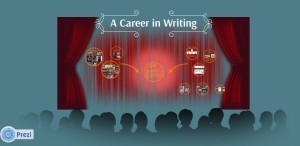
When I was asked to speak to the 8th graders at the local middle school, my first thought was, “Oh cool…I can encourage young people to write.” Then I thought, “Uh-oh. But these are middle schoolers. And middle schoolers are scary.”
Then there was a sense of relief that my daughter at that school is in 7th grade and wouldn’t be embarrassed by me, no matter what.
I have spoken at everything from elementary schools to retirement homes. I don’t think anything intimidated me quite as much as speaking to this age group (middle schoolers are roughly ages 11-14…8th graders being at the upper end of the spectrum). Let’s just say I made sure I prepared so that I looked like I knew what I was talking about. Middle schoolers aren’t known for suffering fools lightly. It was career day and I was talking about a career in writing. Once I focused on the writing, I got through whatever anxiety I had with speaking to this age group.
The amazing thing was how receptive the kids were. I spoke to roughly 120 kids and found most of them very attentive.
I also heard that other people speaking at career day were a policeman, a fireman, a radio personality, and a banker. I figured at least I could be more interesting than the banker, right?
As soon as I was asked to help out with career day, I asked my 12 year old daughter for tips in addressing the kids. She raised her eyebrows and said, “You better use a lot of pictures, Mama.”
That’s when I put the power point together. With pictures. Actually, it was Prezi (I used the free version) and it worked really well.
Here’s what I learned from Friday’s presentation:
Get visual. As my daughter said, “Use lots of pictures.” I also used physical props to illustrate points: a printed-out, marked up draft; an ARC; finished books; old notebooks I’d filled with poems and stories from when I was a kid.
Keep it relevant to them. I talked about successful young writers, what a writer’s day is like, the future for writers and writing, and why I thought it was a great career. I touched on querying (mostly in the context of dealing with rejection), contracts, and promo, but kept that part brief.
Keep it upbeat and uncomplicated. Obviously, some of the business aspect of writing or details of promo or even craft details aren’t going to be very interesting when you’re just generally outlining what you do.
Bring treats. Especially on career day. Because all those other parents had promo junk from their offices. I brought candy. :)
Leave time for questions. I was surprised at the number of questions and the scope of the questions.
Bring a handout/business card/bookmark/something with your email address on there. Some kids were shy about asking questions in front of others.
Remind them there are many different types of jobs that writers can do. We’re novelists, but there are also screenwriters, scriptwriters, songwriters, journalists, playwrights, copywriters, game writers…lots of opportunities for content creators.
Some of the questions they asked:
What about self-publishing? Is that a good choice? (Yes, they did know about this topic! I was amazed.)
How do you get your ideas? (Of course.)
Do you make money when people buy books? How much royalty do you get?
Why do you write under two names?
Is it hard to promote two different names? Do you wish you only had one?
Do you have a favorite book that you wrote?
Have you ever done a school visit? Spoken to this age group? What are your tips?
The post Speaking to Students about Writing appeared first on Elizabeth Spann Craig.



